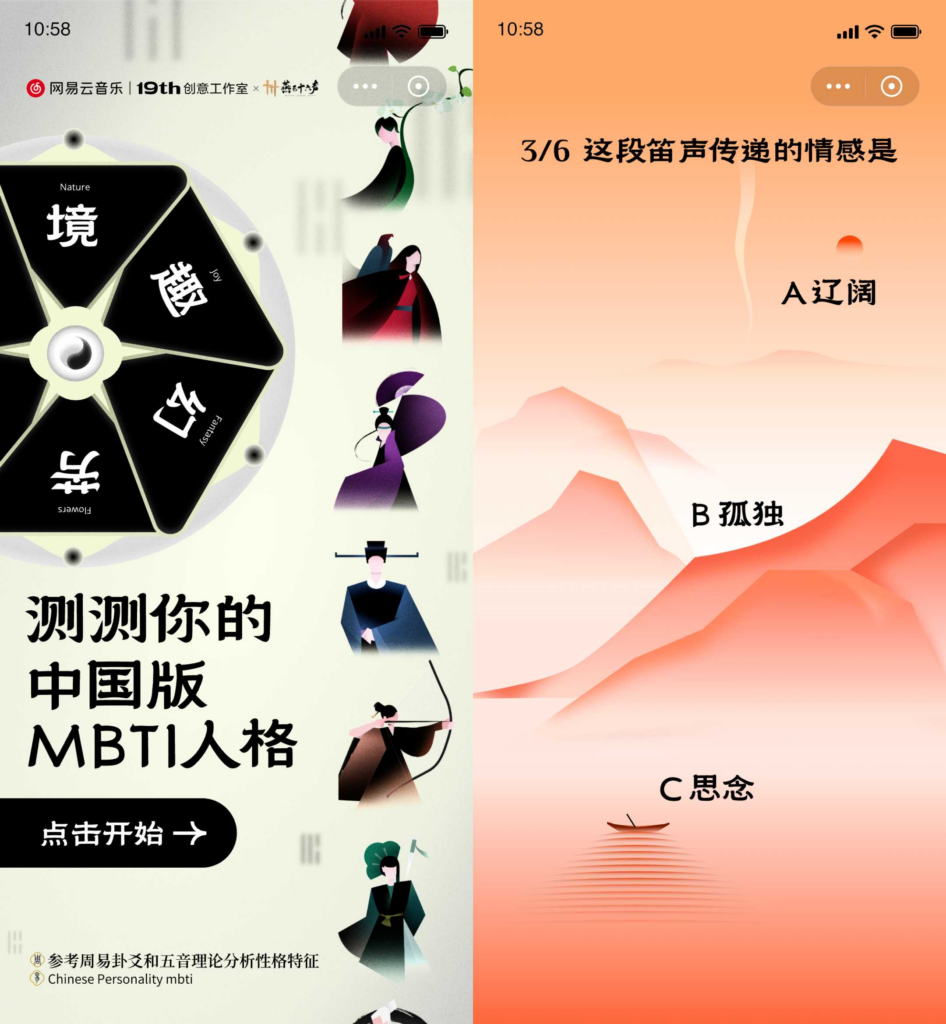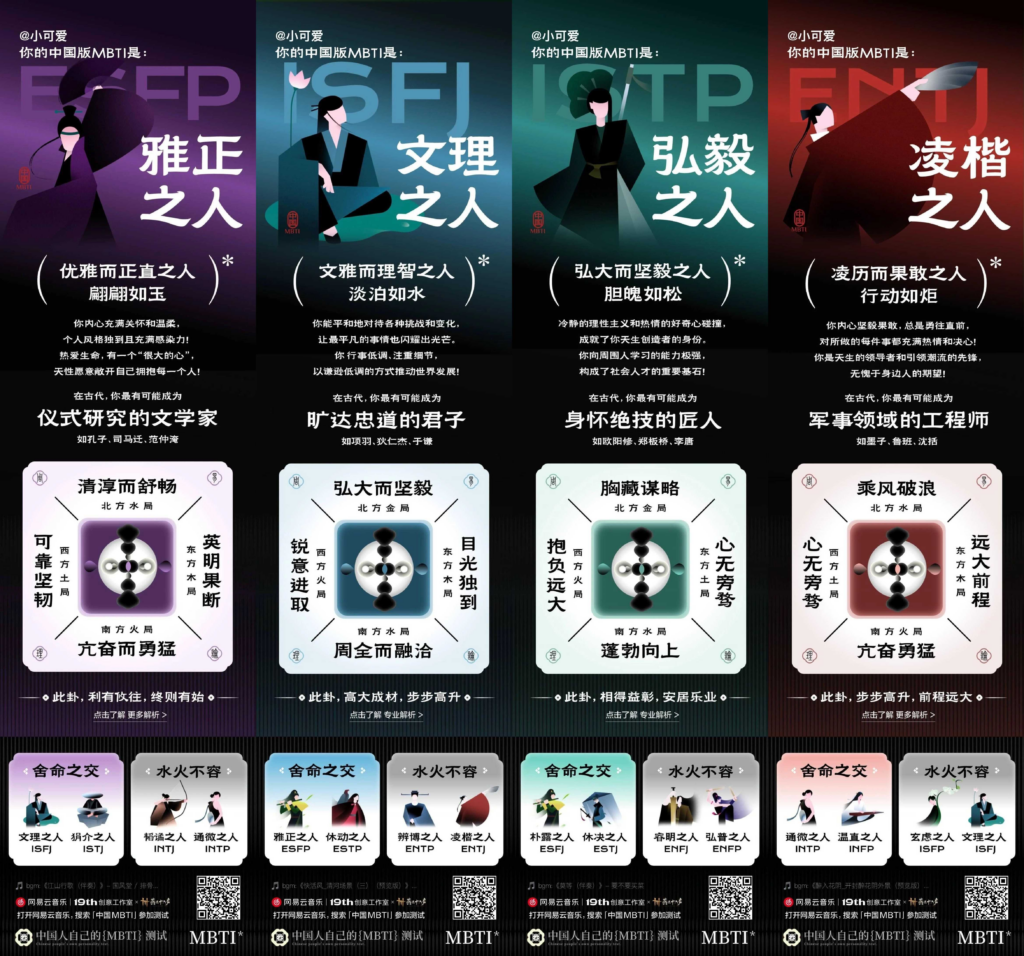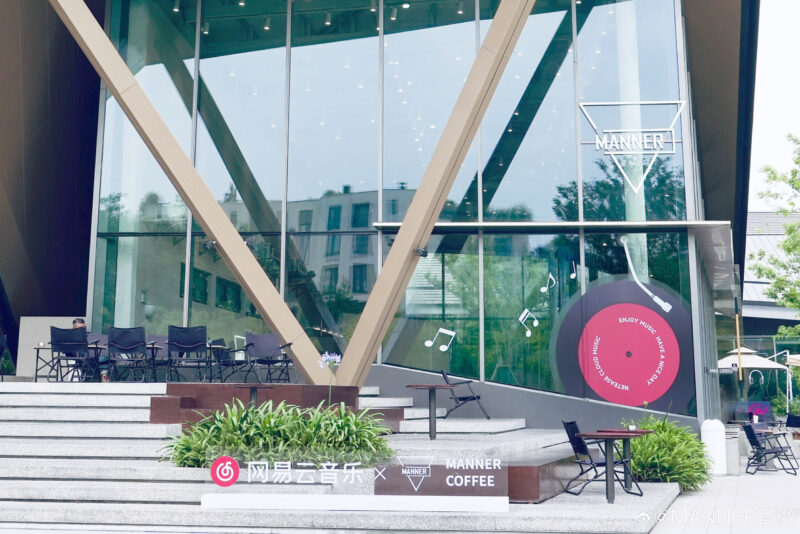On 21 June, NetEase released the “Chinese MBTI” personality test, referencing the ancient I Ching (used to deduce future fortune and misfortune) and Wu Yin (music theory), tailor-made for Chinese users. This test requires only six questions to explore the inner world in the most authentic way.
The six questions are structured as such that after hearing a piece of music, the user selects the scene or state of being they most associate with. The questions are named “Nature, Joy, Fantasy, Flow, Birds, and Spirituality.” The final results are divided into four sections: Northern Water, Southern Fire, Western Earth, and Eastern Wood. The traits of each section combine to form an Eastern version of the MBTI, such as INFP, which corresponds to a “gentle and upright person,” suggesting that the user would have most likely become a “world-famous artist” in ancient times.


The accuracy of the results, however, varies. Each result is accompanied by its own soundtrack, and in the music comments section, many netizens remarked, “INFJ to ESTP? But this is the kind of thing that is good to measure for fun.” Some netizens praised the choice of soundtrack: “Every single selection has a lot of flavour.”
From Tarot to MBTI, to today’s Chinese version of MBTI, behind the evolution of these ‘social currencies’ is the unchanging pursuit of group identity in human society. NetEase combines this with the Chinese Xuanxue that has emerged in recent years, creating a test differentiated by its Chinese selling point to spark a UGC (user-generated-content) sharing craze. Users shared the results on Xiaohongshu (RED), Weibo, WeChat Friend Circles, and others.
This is not the first time that NetEase has released such an intriguing test. Previously, NetEase released “Test Love MBTI Personality,” “Test Your Philosophical Talent,” “Test Your Dominant Colour of Personality,” and so on, with each theme perfectly matching current festive hotspots or trends, attracting young users to participate in the tests and share them spontaneously.
NetEase’s social attributes are evident. They have tried to emphasise its social function by “allowing unfamiliar users to chat with each other”: in the “Annual Listening Report,” the “One Song, One Encounter” feature at the end of the report allows users to find others with similar listening preferences and share their favourite songs. In 2022, NetEase also launched its first social music app, but it was hastily taken offline due to its immaturity.
Although NetEase has not yet developed an independent social software, its community and sentiment business is thriving. From the “Villagers’ Square” for sharing daily life to the “Song Room,” which can be used as a study room, game room, etc., to “Music Dating” and “Listening to Songs Together,” it is expanding its community. NetEase’s comment section has become a focus due to its uniqueness. There are always some touching or funny remarks in NetEase’s comment section, which can outline a story or scene with just a few strokes, leaving a deep impression or evoking long-lasting reminiscence. The development of NetEase’s review community has fostered a user habit of “listening to music and browsing reviews.”
NetEase also benefits from the social attribute of music. According to the financial report, NetEase’s 2023 net income was 7.87 billion RMB (approx. 1.08 billion RMB). Of this, its online music service revenue reached 4.35 billion RMB (approx. 0.6 billion RMB), while social entertainment services and other income totalled 3.52 billion RMB (approx. 0.48 billion RMB), nearly “half and half.”









